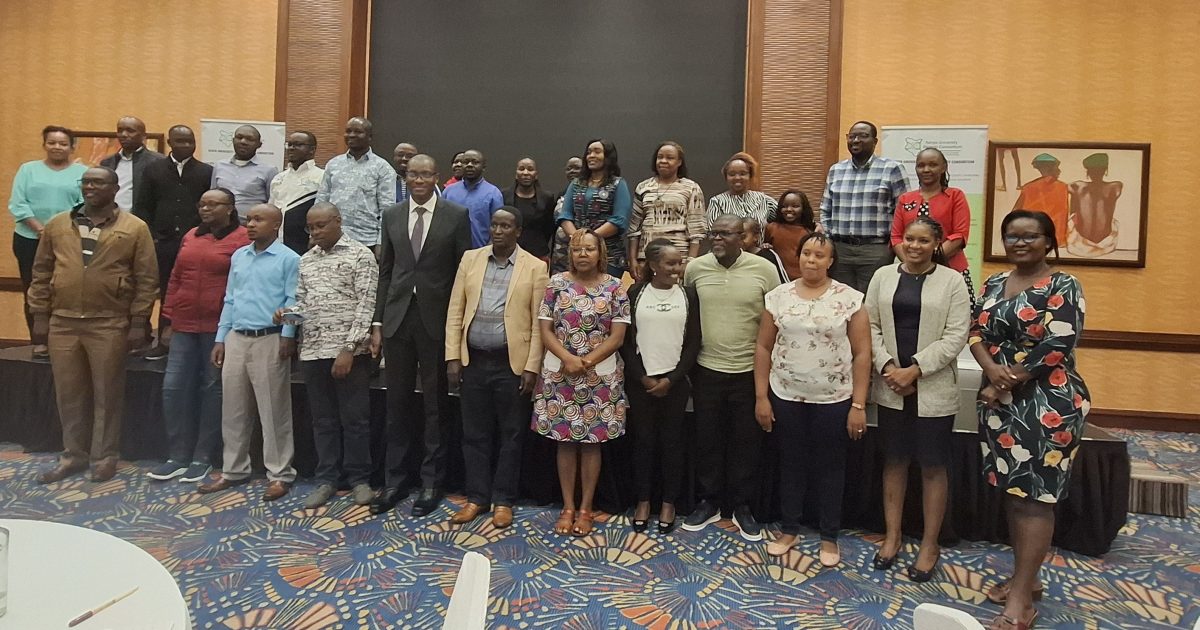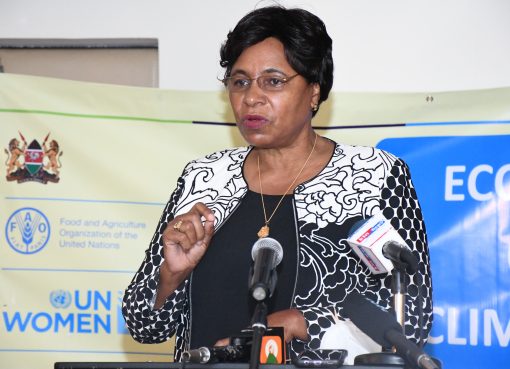Healthcare professionals in the country are calling for resolution on the Genetically Modified food crops in order to enhance the country’s nutrition status as well as food security.
The medics say that biotechnology is essential in developing some key pharmaceutical products apart from increasing food production.
Speaking during a meeting that brought together healthcare professionals from diverse disciplines in Nairobi, the experts said that biotechnology has been applied in the medical field to develop drugs and enhanced nutrition and even beauty products.
A clinical pharmacologist from UMMA University Dr. James Ndukui, said that biotechnology is here to stay and very useful in the Kenyan population concept, where the population is increasing and therefore the need to enhance food production is encompassed in Vision 2030 food security, safety, and sustainability.
On matters of health, he noted that there are a lot of emerging diseases that need to be streamlined by the implication and utilization of biotechnology through GMO.
“GMO being treated as a non-consumable is a fallacy in our setup up because countries that have embraced biotechnology are doing very well in terms of pharmaceutical production and food sustainability and in terms of actually human medicine care,” he added.
In the aspect of pharmacogenetics, Dr. Ndukui said that they are trying to scale out individuals’ gene makeup to stem chronic diseases affecting the communities, such as dementia, Alzheimer’s, and, very currently, wounds that are not healing, by using stem cell technology and mitigating the disease conditions.
“We need to rethink, call a meeting in our minds, and embrace the utilization of biotechnology in enhancing crop production and also human treatment, management, and care at the hospital level,” Dr. Ndukui said.
Prof. Richard Oduor, Registrar in charge of Research, Innovation, and Outreach at Kenyatta University, said scientists in this area of biotechnology have the ability to communicate on the importance of biotechnology, including the myths that surround the issue.
“These scientists have been working in the lab working to GMO products and have expressed the importance of adopting this technology largely for pharmaceutical reasons and also for food,” he said.
The chairman of the Kenya University Biotechnology Consortium (KUBIKO) Prof. Oduor noted that the application of biotechnology in medicine is really rampant, right from the development of insulin, which is very important for addressing most diseases, but noted that with the interference of biotechnology that is critical and has the potential to address not only food and medical challenges, then we will be lagging behind as a country.
“This is the beginning of a long conversation we are going to have with medics. They have offered to be champions of biotechnology, and this is very useful for this country in areas beyond food security, even in health, bioremediation, and even in the face of climate change,” Prof. Oduor said.
The Dean of the School of Health Sciences at Mama Ngina University College Dr. Ruth Mbugua, said the only way we can be able to ensure that we have adequate food in this country to be able to prevent or deal with the malnutrition is for all to accept the biotechnology that will help produce enough food for our country and for our children.
Statistics have shown that in this country particularly, many children suffer from malnutrition, with 849 children below five years actually suffering from malnutrition in the country.
Over 10 percent of pregnant women suffer from anemia, and there are about 26.6 percent of children below five years again suffering from chronic malnutrition and stunting that currently stands at 18 percent for children below 5 years and not getting enough nutrients.
“Going by these statistics, it means we have a problem with the food insufficiency if we are to embrace the genetically modified foods, which we are saying is safe, and considering that Kenya has regulations in place to ensure that what gets to table is safe for human consumption, we would actually say GM is the magic bullet to the issues we have in terms of food security”, Dr. Mbugua said
She encouraged and assured Kenyans genetically modified food or products, including the vaccines and the drugs that have been with us for quite some time and are really important, are something that, as a country, Kenyans cannot run away from.
“If we do not embrace or accept the biotechnology that allows the production of seeds that are able to resist diseases or be able to adapt to climate change, including the drought and the floods, then we shall continue food insecurity in this country,” Mbugua said.
KUBIKO has been holding sensitization meetings with nurses, nutritionists, and other healthcare professionals across the country.
Senior Researcher and Leader of the Agricultural Biotechnology Programme at the University of Nairobi Dr. Joel Ochieng, said the country is moving into the commercialization phase for most of the products of modern biotechnology, and the involvement of healthcare professionals is needed to spur public confidence as well as assure that the technology is applied safely.
He challenged the healthcare professionals to come out strongly as collaborators, reviewers, and advisors, recognizing food as the very first medicine, and all others, such as oral or drug injections, come in when the nutrition has failed.
Dr. Ochieng, who is also the Secretary General of KUBICO, said biotechnology is applied in healthcare, environmental remediation, and agriculture to enhance food and nutritional security.
KUBIKO was awarded last year in December by the Kenya Medical Association (KMA) for outstanding partnership and research that addresses critical global challenges aimed at developing climate-resilient crops and animals to cushion farmers against the vagaries of climate change.
In November last year, the High Court dismissed several petitions challenging the lifting of the ban on genetically modified organisms (GMOs) after the cabinet decision in 2022 to lift the ten-year ban on GMO, attracting several litigations.
The petitioners early this year moved to the Court of Appeal, challenging the ruling of Judge Lawrence Mugambi, in which they listed the Attorney General and the Biotech Consortium, among others.
By Wangari Ndirangu




